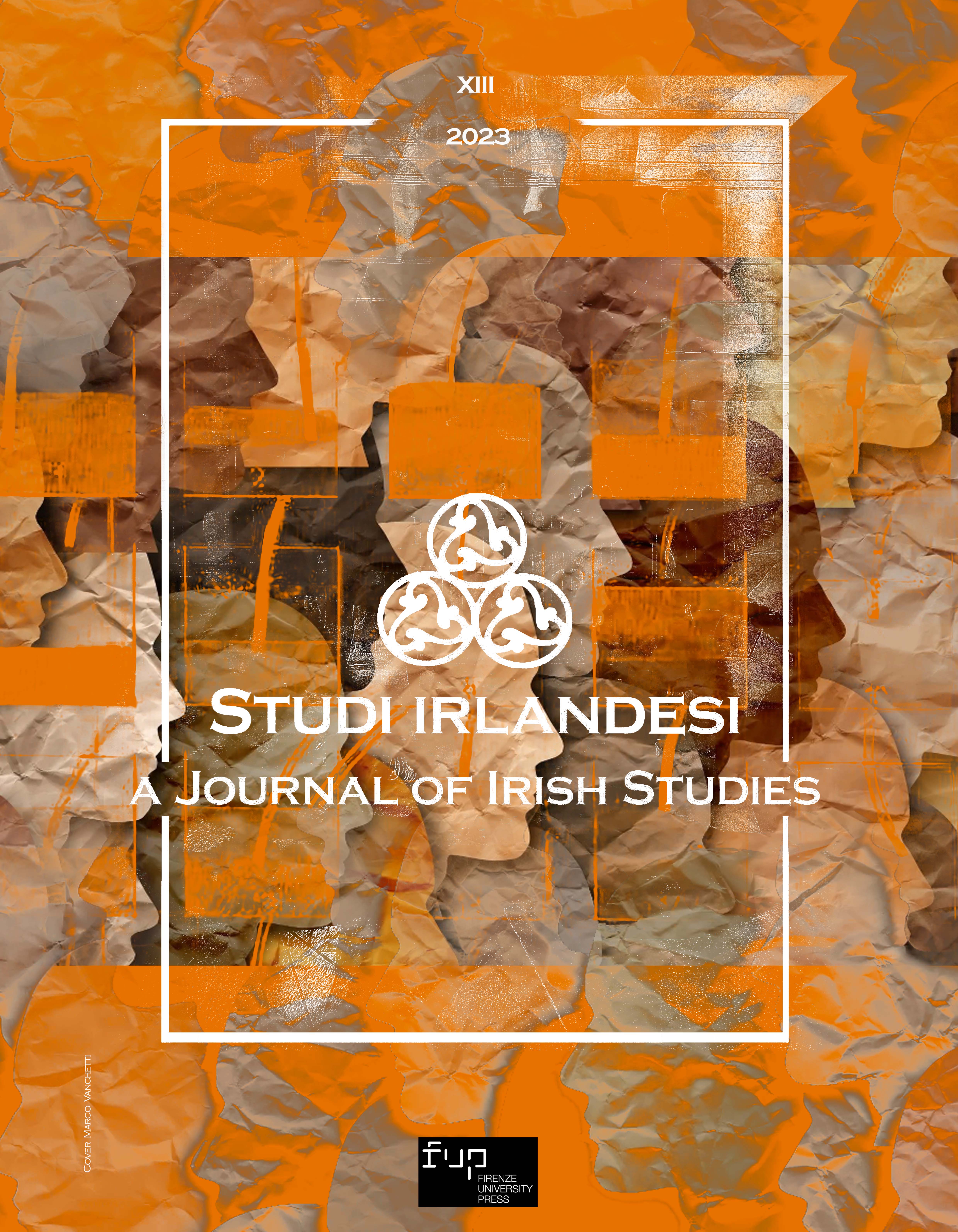Published 2023-07-31
Keywords
- Fieldwork,
- Folklore,
- Oral Tradition,
- Storytelling,
- W.B. Yeats
How to Cite
Copyright (c) 2023 Vito Carrassi

This work is licensed under a Creative Commons Attribution 4.0 International License.
Abstract
W.B. Yeats had a key role in the Irish folklore. Before writing his masterpieces, often arising from
an original encounter between folklore and literature, the young Yeats was directly concerned with
the collecting of folklore. Initially he had worked as an editor, drawing his material from a variety
of XIX century’s narrative collections; however, through this editing he had already sketched his
own idea of folklore. With his later work, The Celtic Twilight, Yeats became a first-hand collector,
thus acting as a folklorist. A singular kind of folklorist, indeed, who addressed his material
according to views and goals quite distant from the canonical approach of an ethnographic research.
His was the approach of a writer seeking in folklore a different kind of literature. Hence, are we
legitimized to regard Yeats as a folklorist? How to evaluate his unorthodox methodology? Was his
approach unsuitable? Or, perhaps, by treating his material as a dynamic, living issue, rather than a
static, outdated item, was this approach more fitting for understanding folklore? These are some
questions I discuss in my paper, so as to develop a critical reassessment of the concept of folklore,
its methods and aims.

